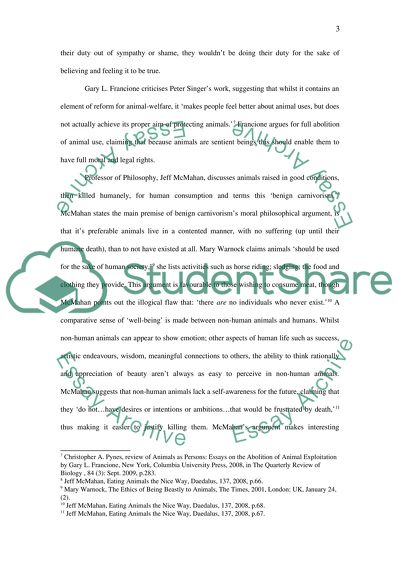Cite this document
(“What duties, if any, do we have to non-human animals Essay”, n.d.)
Retrieved from https://studentshare.org/environmental-studies/1405802-what-duties-if-any-do-we-have-to-non-human-animals
Retrieved from https://studentshare.org/environmental-studies/1405802-what-duties-if-any-do-we-have-to-non-human-animals
(What Duties, If Any, Do We Have to Non-Human Animals Essay)
https://studentshare.org/environmental-studies/1405802-what-duties-if-any-do-we-have-to-non-human-animals.
https://studentshare.org/environmental-studies/1405802-what-duties-if-any-do-we-have-to-non-human-animals.
“What Duties, If Any, Do We Have to Non-Human Animals Essay”, n.d. https://studentshare.org/environmental-studies/1405802-what-duties-if-any-do-we-have-to-non-human-animals.


